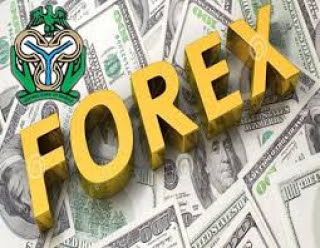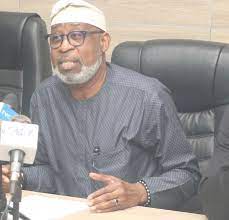Indications that current hardships of millions of Nigerians associated with the rising costs of foods, transportation and other basic needs may not abate soon were further validated on Wednesday as the Naira depreciated to an all-time record low of N1,100 to the US dollar at the black market.
Investigations by our correspondent at some foreign exchange parallel market points in the Federal Capital Territory (FCT), showed that at Wuse Zone 3 axis, the local currency traded at between N1,070 and N1,100 for the US dollar in the noon hours of the day.
At the Jabi axis, some FX dealers, who were selling the greenback per inflow, confirmed that the Naira traded at N1,080 to the dollar in the early hours of the trading session and attributed the sliding value of the local currency to supply shortfall.
One of them trading in one of the hotels, who simply identified himself as Muhammad, lamented that “we are suffering here now as we can’t even see the dollar to buy when customers are coming to us. So, we want the CBN Governor to change the new policies to make dollar available to all of us.”
The local currency has, over the last two weeks, been depreciating at supersonic rate as buyers and sellers continue to scramble for the US dollar to meet their individual and corporate foreign exchange (FX) obligations nationwide.
The Naira recorded its lowest exchange rate at the official FX market on Tuesday, to trade at N848/$1 amid worsening FX inflow to the country.
As part of its sustained efforts to ensure the stability of the Naira at the official and parallel markets, the CBN recently announced the unification of the FX rates at the official and parallel markets but then the initiative has not achieved much result given the current situation in the FX market.
Again, the apex bank last week lifted the ban on access to FX for importation of the 43 items after years of its implementation in furtherance of its policy measures to boost the greenback and other foreign currencies supply in the economy.
It justified the latest measure on the need to boost liquidity in the Nigeria Foreign Exchange market and promised to be intervening from “time to time” when there is a scarcity of FX in the market.




